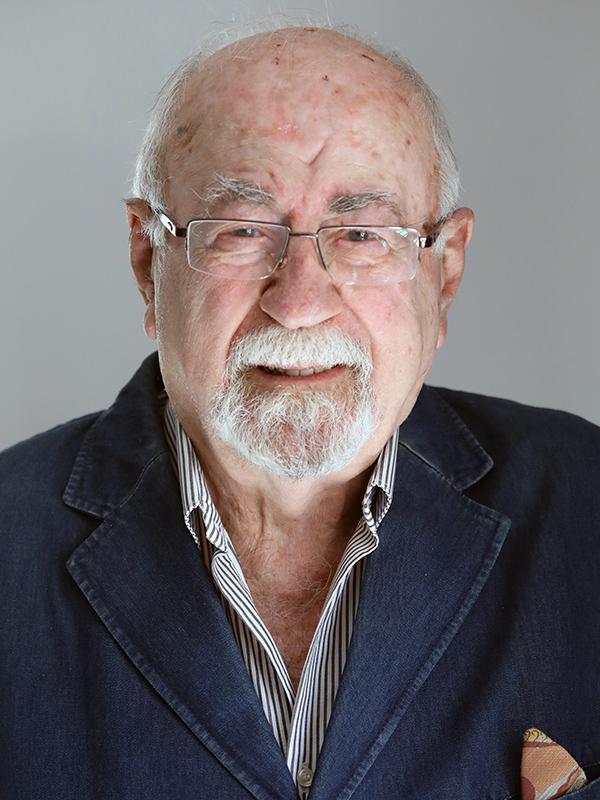Raul Teitelbaum lit one of six torches at the State Opening Ceremony of Holocaust Remembrance Day at Yad Vashem in 2018.
Raul-Israel Teitelbaum was born in 1931 in Prizren, Yugoslavia (today Kosovo), the only child of Dr. Josef and Paula Teitelbaum. In April 1941, the Germans invaded Yugoslavia. In the winter of 1941-1942, the Italian occupation authorities arrested Josef and sent him to a detention camp in Albania, where he was put in charge of the camp infirmary.
The Italian Army requisitioned the family’s apartment, and Raul and his mother were thrown out on the street. Their friends Dragotin and Ana Jakic opened their house to them, and Raul joined the Yugoslav underground.
In the summer of 1943, Raul and Paula moved to Albania to visit his incarcerated father. When Italy surrendered in September 1943, Albanian partisans liberated the camp where Josef was being held, and the family joined the partisans. Josef treated injured partisans and sick villagers. After a few days, the Germans went on the offensive and the partisans were forced to retreat to the mountains. With Josef suffering from stomach ulcers the family hid among villagers, but ultimately had to return to Prizren. Twelve year-old Raul rejoined the underground in the city, distributing leaflets and taking part in acts of sabotage against the Germans.
In May 1944, the Teitelbaums were caught and sent to the Sajmište concentration camp, and from there to Bergen-Belsen. On 9 April 1945, a few days before liberation, Raul, Paula and Josef were sent from Bergen-Belsen with a group of prisoners on what became known as the "lost train." Two weeks later, the prisoners were freed by the Red Army. They were sick, and some of them died. Raul had contracted typhus, and Josef died in a Red Army hospital three days after liberation. Raul’s grandmother Ethel had died in the Terezin ghetto.
In 1949, Raul and his mother immigrated to Israel. He enlisted in the IDF and served as an artillery officer, eventually rising to the rank of major. As a journalist, Raul has published hundreds of articles and reports about the Holocaust, Holocaust survivors, and the society and economy of Israel. He was a formulator of "Our Living Legacy" – a call by Holocaust survivors to educate towards humanitarian values, democracy, human rights and tolerance, and against racism and totalitarian ideologies. He has been active in the Center of Organizations of Holocaust Survivors in Israel since its establishment in 1987, and is a lecturer, researcher and an initiator of a project highlighting the contribution of Holocaust survivors to the founding and development of Israel.
Raul and his late wife Aliza have two daughters and four grandchildren.


